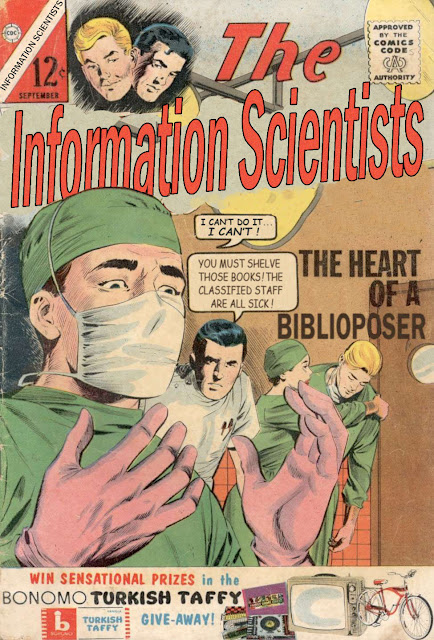The recent presidential election and subsequent accusations of voter fraud has proven one indisputable fact: a shocking number of Americans are complete idiots. Following their orange-faced messiah down the rabbit hole, many voters embrace bizarre conspiracy theories that have no basis in reality. One might cast about for the many reasons of this mass stupidity, but at True Archives we know where to place the blame. Eschewing print, these nattering nabobs of nonsense seem to get all of their information from the internet.
If there truly is a vast conspiracy in our republic, it can be found in the management and operation of academic libraries by Information Scientists who encourage their students to rely on screen pixels for enlightenment. The massacre of books in the millions has left the American college library little more than a pizza parlor staffed by overpaid computer jockeys. Instead of delving deeply into the discourse of distinguished authors, students now take in their information in easily-digestible driblets of dross. It is little wonder that so large a portion of this benighted nation is incapable of thinking beyond a bumper-sticker slogan when they have actively been encouraged to jettison the practice of deep reading for the past two decades.
Someday this pandemic of ignorance will pass, but until that blessed event arrives it is high time the Biblioposers in charge of our academic libraries send their collections to the archives for safe keeping. When we finally emerge from the shadows, we will need the wisdom of the ages more than ever.




